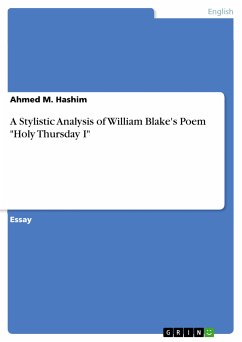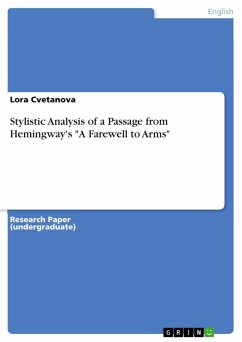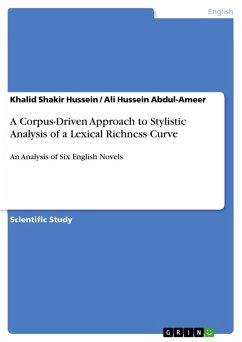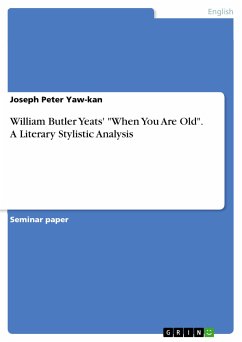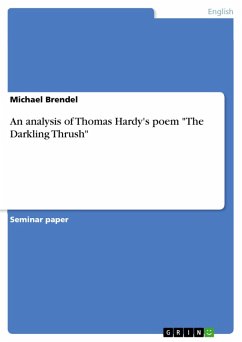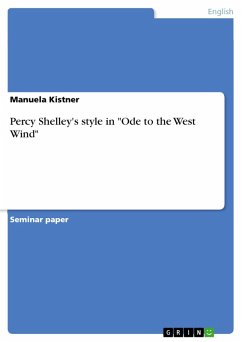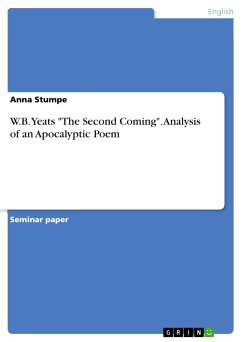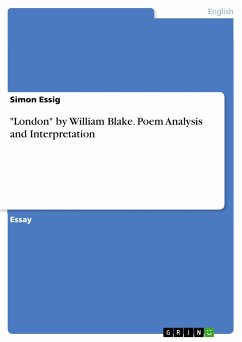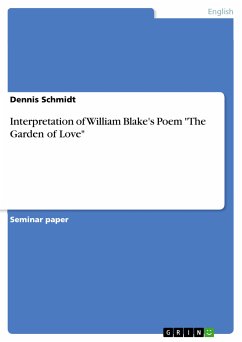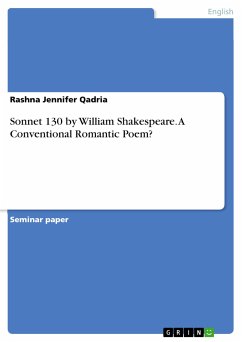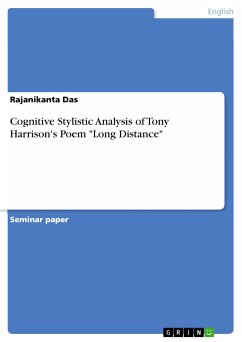
Cognitive Stylistic Analysis of Tony Harrison's Poem "Long Distance" (eBook, PDF)

PAYBACK Punkte
0 °P sammeln!
Seminar paper from the year 2010 in the subject English Language and Literature Studies - Literature, grade: 1,3, Ruhr-University of Bochum (Englisches Seminar), language: English, abstract: In his 1978 poem 'Long Distance' Tony Harrison describes his father's difficulties in coming to terms with his wife's death and the emotions Harrison himself experiences upon the death his father. To arrive at this interpretation after reading the poem is, by all means, a valid insight. It would, however, be a pity to be contented with this alone. For such a reading does probably not allow for the rhetoric...
Seminar paper from the year 2010 in the subject English Language and Literature Studies - Literature, grade: 1,3, Ruhr-University of Bochum (Englisches Seminar), language: English, abstract: In his 1978 poem 'Long Distance' Tony Harrison describes his father's difficulties in coming to terms with his wife's death and the emotions Harrison himself experiences upon the death his father. To arrive at this interpretation after reading the poem is, by all means, a valid insight. It would, however, be a pity to be contented with this alone. For such a reading does probably not allow for the rhetoric means to be fully appreciated to which Harrison reverted to communicate his poem successfully. Furthermore, the way in which the reader experiences the poem, as well as how it affects the reader would not find consideration. In short - the poem's texture would not be accounted for. The following analysis, based on my own natural reading, attempts to describe and explain the texture of Harrison's poem. As is to be expected, the first stanza of the poem has a distinct effect on the reader. For one, this is because the level of concentration is still high. More importantly, however, the first stanza of the poem presents the reader with an appealing text world. Foremost, the agent of the sentence is human, namely the narrator's father. A human agent, in a way, provides the reader with the possibility to interact mentally with or develop sentiments towards him. Stockwell (2009: 25) illustrates this with his empathetic recognisability scale on which human agents rank highest. Besides this, the line initial positioning and, somewhat obvious, capitalization of the word 'Dad' (l. 2) attract the reader's attention. Furthermore, the actions described are all in the active voice and literally convey motion, which will appear more intense to a reader which Stockwell (2009: 25) terms activeness. Lastly, the objects described in the first stanza, 'slippers', 'bottles', and 'transport pass' (ll. 2, 3, 4 respectively), all form good attractors as they are concrete, very ordinary objects to which every reader ought to be able to relate easily. Together, these three factors ensure that the first stanza remains fairly prominent in the reader's mind throughout the reading of the poem.[...]
Dieser Download kann aus rechtlichen Gründen nur mit Rechnungsadresse in A, B, BG, CY, CZ, D, DK, EW, E, FIN, F, GR, HR, H, IRL, I, LT, L, LR, M, NL, PL, P, R, S, SLO, SK ausgeliefert werden.




